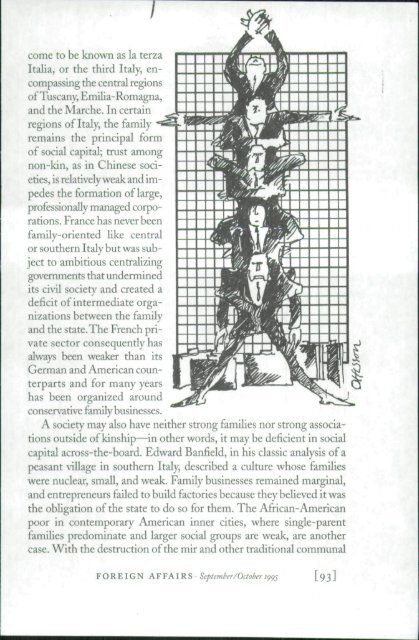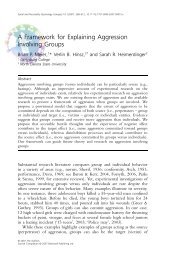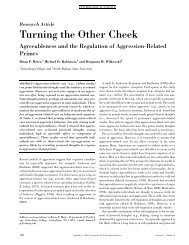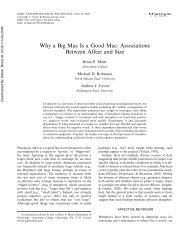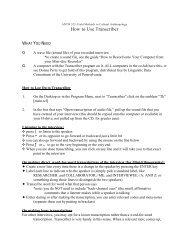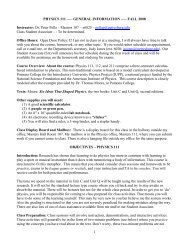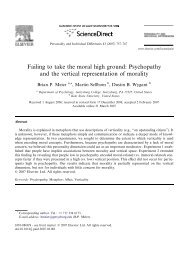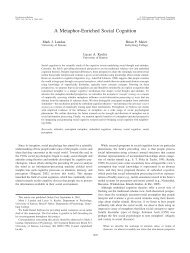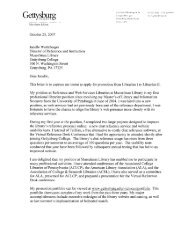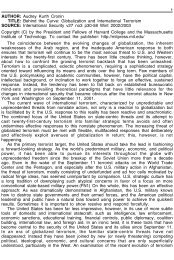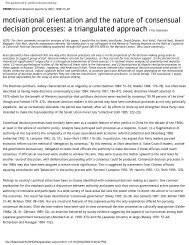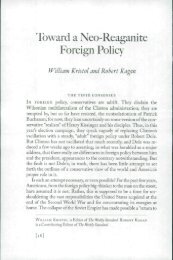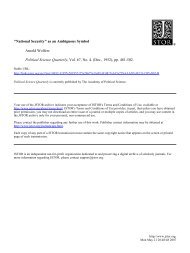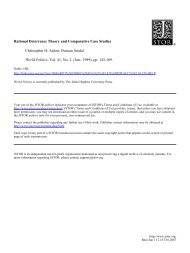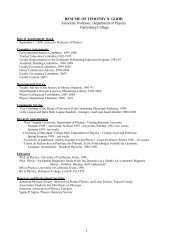Francis Fukuyama. 1995 "Social Capital and the Global Economy."
Francis Fukuyama. 1995 "Social Capital and the Global Economy."
Francis Fukuyama. 1995 "Social Capital and the Global Economy."
Create successful ePaper yourself
Turn your PDF publications into a flip-book with our unique Google optimized e-Paper software.
come to be known as la terza<br />
Italia, or <strong>the</strong> third Italy, encompassing<br />
<strong>the</strong> central regions<br />
of Tuscany, Emilia-Romagna,<br />
<strong>and</strong> <strong>the</strong> Marche. In certain<br />
regions of Italy, <strong>the</strong> family<br />
remains <strong>the</strong> principal form<br />
of social capital; trust among<br />
non-kin, as in Chinese societies,<br />
is relatively weak <strong>and</strong> impedes<br />
<strong>the</strong> formation of large,<br />
professionally managed corporations.<br />
France has never heen<br />
family-oriented like central<br />
or sou<strong>the</strong>rn Italy but was subject<br />
to ambitious centralizing<br />
governments that undermined<br />
its civil society <strong>and</strong> created a<br />
deficit of intermediate organizations<br />
between <strong>the</strong> family<br />
<strong>and</strong> <strong>the</strong> state.The French private<br />
sector consequently has<br />
always been weaker than its<br />
German <strong>and</strong> American counterparts<br />
<strong>and</strong> for many years<br />
has been organized around<br />
conservative family businesses.<br />
A society may also have nei<strong>the</strong>r strong families nor strong associations<br />
outside of kinship—in o<strong>the</strong>r words, it may be deficient in social<br />
capital across-<strong>the</strong>-board. Edward Banfield, in his classic analysis of a<br />
peasant village in sou<strong>the</strong>rn Italy, described a culture whose families<br />
were nuclear, small, <strong>and</strong> weak. Family businesses remained marginal,<br />
<strong>and</strong> entrepreneurs failed to build factories because <strong>the</strong>y believed it was<br />
<strong>the</strong> obligation of<strong>the</strong> state to do so for <strong>the</strong>m. The African-American<br />
poor in contemporary American inner cities, where single-parent<br />
families predominate <strong>and</strong> larger social groups are weak, are ano<strong>the</strong>r<br />
case. With <strong>the</strong> destruction of<strong>the</strong> mir <strong>and</strong> o<strong>the</strong>r traditional communal<br />
FOREIGN AFFAIRS' September/October 2995 [93]


